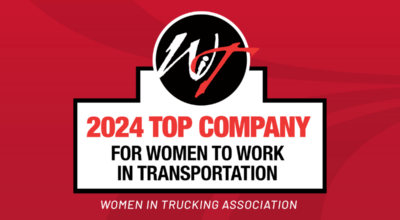
Every industry has regulations, trucking included. Staying current with new DOT regulations is important to getting and staying legally compliant.
This requires also staying updated on changes as they are implemented. The following DOT rules and regulations are new in 2022.
Lower age of entry into the driving profession
Traditionally, people had to wait until they turned 21 to apply for a CDL. Under the Safe Driver Apprenticeship Pilot (SDAP) Program, people between the ages of 18 and 20 now have this option.
The SDAP Program was established on January 14, 2022, and allows some individuals who are older than 17 but under the age of 21 to engage in a three-year driving apprenticeship. Applications are not yet being accepted for this program. Once it is put in place, individuals will be able to apply via a motor carrier approved by the Federal Motor Carrier Safety Administration (FMCSA).
New training requirements for entry-level CDL holders
In the past, driver training was not required to obtain a commercial driver’s license (CDL) endorsement. However, due to new DOT regulations, this has changed effective February 7, 2022.
The FMCSA shares that entry-level driver training (ELDT) is now a requirement before an individual falling in the category of “entry-level driver” can take certain CDL skills and knowledge tests. This includes individuals who:
- Are obtaining a Class A or Class B CDL for the first time
- Are upgrading from a Class B CDL to a Class A
- Are seeking to obtain one of the following endorsements: school bus (S), passenger (P) or hazardous materials (H)
If you’re unsure whether ELDT is required for you or your drivers, the FMCSA provides a helpful scenario chart to help you know for sure.
Closed gap in drug and alcohol violation reporting
Technically, this change occurred on October 7, 2021. However, compliance with this final rule—which is also referred to as the Clearinghouse-II final rule, is not required until November 18, 2024. So, while it’s not a a new DOT regulation for 2022, it is worth mentioning here.
In October, the FMCSA posted an amendment outlining changes related to the access and use of the information contained within the Drug and Alcohol Clearinghouse. The goal of these changes is to help improve highway safety by closing the knowledge gap that exists between the FMCSA and State Driver’s Licensing Agencies (SDLAs) when a driver receives a drug or alcohol program violation.
Under the FMCSA’s amendment, SDLAs cannot issue, renew, change, upgrade or transfer a CDL or CLP (commercial learner’s permit) for a driver with one or more drug or alcohol violations. Additionally, SDLAs must remove CDL and/or CLP privileges from the license of a person who is legally prohibited from having these designations for reasons related to drugs and alcohol violations until they’ve met all of the return-to-duty requirements.
Prohibition from asking about criminal history too early in the hiring process
This is another change that became effective last year, on December 20, 2021. But is important to mention here since this act was implemented a mere 11 days before the start of 2022.
Under the Fair Chance to Compete for Jobs Act of 2019 (FCA), a federal employer hiring for jobs within the legislative branch cannot ask a job applicant about their criminal history before extending a conditional job offer. This means you can’t ask the candidate if they’ve ever been arrested or convicted of any type of crime until you’re ready to hire them.
The FCA was put into place to help formerly incarcerated people get a fair shake when applying for a job. That said, CDL drivers applying for a federal position can still be searched through the Drug and Alcohol Clearinghouse, which may help uncover these types of offenses.
These are just some of the trucking regulation changes made in recent months. Staying current on modifications such as these can help you and your team remain fully compliant with all mandatory regulations, whether long-standing or if they’ve just been put into place.
Curious about more compliance changes in trucking? Check out our 2022 compliance guide here. Or download our free DOT compliance checklist here.


